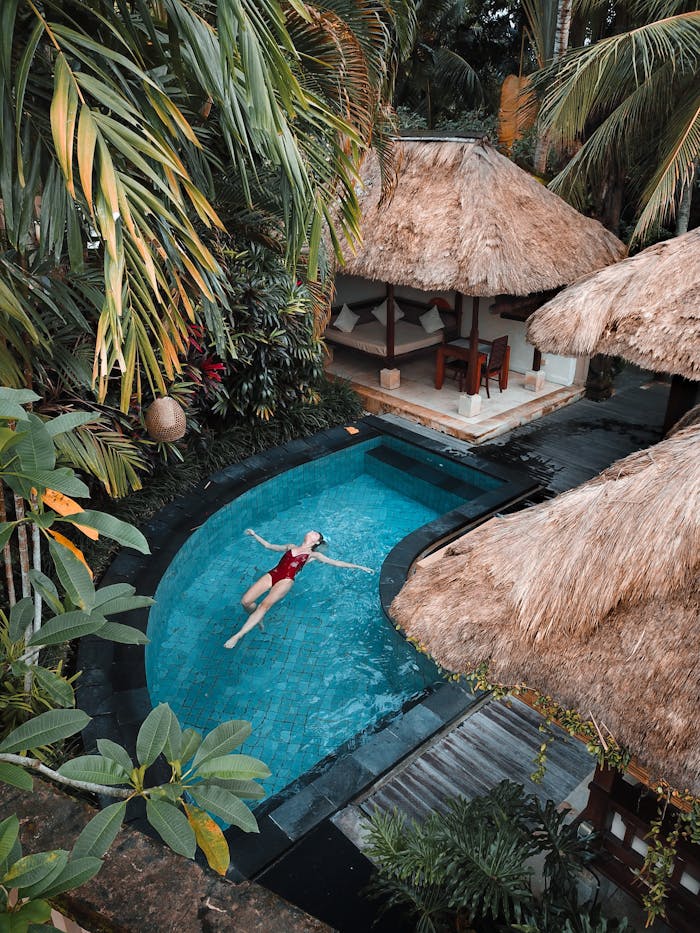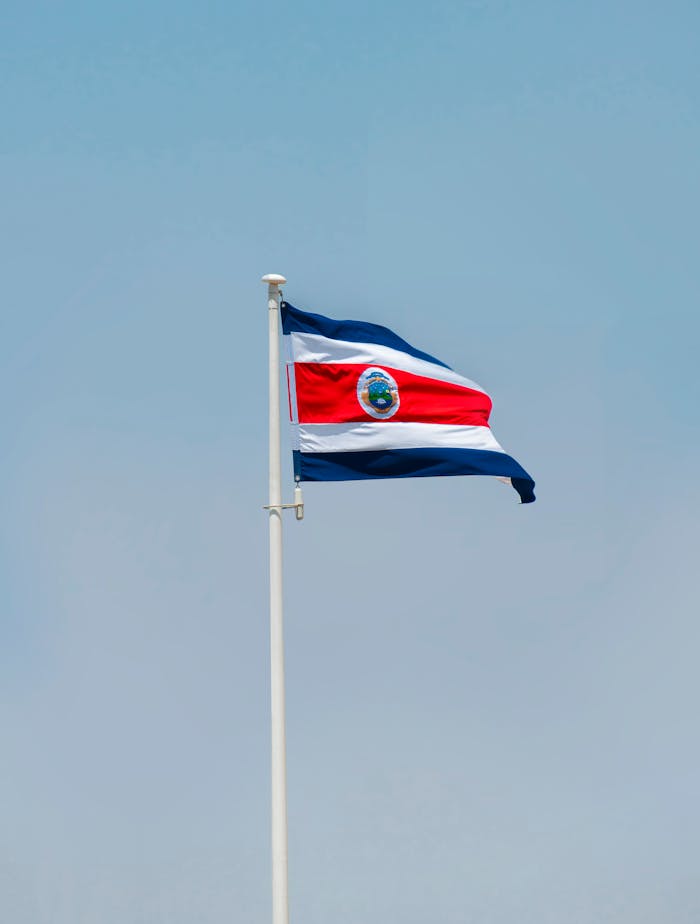Moving to Costa Rica Has Never Been This Efficient, Easy, and Fun*
We offer expert relocation services, permanent residency filing, opening of personal or business bank accounts, cell phone and internet service setup assistance, and access to a fully comprehensive suite of personalized immigration support catered to your unique goals, as well as housing facilitation. Additionally, we introduce you to awesome-friendly locals that align with your lifestyle! <3

Our Comprehensive Services
Tailored services to meet all your relocation needs
Consulting
Personalized one-to-one guidance for your move to Costa Rica
Immigration
Professional assistance with documentation and procedures
Residency
Efficient filing for permanent residency applications
Banking
Smooth transition with help in setting up local bank accounts
Lawyers
Access to the very best legal counsel and resources
Housing
Connect with trusted local realtors for your dream situation

Challenges You Might Face

How We Make It Easier
Why Choose Move to Costa Rica

Expert Guidance
Decades of experience and friendly professionals assisting you throughout the process
Comprehensive Services
Complete support from banking to real estate connections and local contacts on the ground
Multilingual Assistance
English, Spanish, and other language support to cater to your personalized needs
Frequently Asked Questions
Answers to common queries about relocating to Costa Rica
Costa Rica is a Central American country located between approximately 8° and 11° North latitude and 82° and 86° West longitude. It is bordered by Nicaragua to the north and Panama to the southeast, with the Pacific Ocean to the west and south, and the Caribbean Sea to the east. The country’s strategic location makes it a key player in the region, serving as a bridge between North and South America.
Costa Rica is divided into seven provinces: San José, Alajuela, Cartago, Heredia, Guanacaste, Puntarenas, and Limón. The capital city, San José, situated in the Central Valley, is the political, economic, and cultural heart of the nation. Nearby, the city of Alajuela is home to the Juan Santamaría International Airport, a major gateway for international trade and tourism.
Cartago and Heredia are important for their agricultural and technological contributions, while Guanacaste, with its city of Liberia, is renowned for its Pacific coast tourism and the Daniel Oduber Quirós International Airport.
Puntarenas and Limón provinces play crucial roles in maritime trade, with the Port of Caldera on the Pacific and the Port of Limón on the Caribbean facilitating exports to global markets. Costa Rica’s diverse geography, from lush rainforests and cloud forests to extensive coastlines, supports a robust agricultural sector, producing coffee, bananas, and tropical fruits for export.
The country’s emphasis on environmental conservation and political stability enhances its attractiveness to international investors and tourists, solidifying its position in the global market.
Moving to Costa Rica offers a myriad of benefits, making it an attractive destination for expatriates and retirees alike. Known for its political stability and peaceful society, Costa Rica has abolished its military since 1949, redirecting resources towards education and healthcare. The country boasts a high standard of living with a robust healthcare system, including a universal healthcare program (Caja Costarricense de Seguro Social) that provides quality medical services at a fraction of the cost compared to many Western countries.
Costa Rica’s natural beauty is unparalleled, featuring diverse ecosystems ranging from lush rainforests and cloud forests to pristine beaches along the Pacific Ocean and Caribbean Sea. This biodiversity makes it a haven for nature lovers, offering endless opportunities for outdoor activities such as hiking, surfing, and wildlife observation. Additionally, Costa Rica’s commitment to environmental sustainability is evident, with over 25% of its land designated as protected national parks and reserves.
The country also provides a favorable climate year-round, with temperatures varying from the cooler highlands in places like San José and Heredia to the warm coastal areas of Guanacaste and Puntarenas. This varied climate allows residents to choose a living environment that best suits their preferences.
Economically, Costa Rica has a growing economy with opportunities in various sectors such as tourism, agriculture, and technology. The government offers incentives for foreign investment, making it a promising destination for entrepreneurs and investors. The cost of living can be significantly lower than in many Western countries, especially in rural areas, while urban centers like San José offer modern amenities and infrastructure.
Culturally, Costa Rica is known for its friendly and welcoming people, often referred to as “Ticos.” The country enjoys a rich cultural heritage, with vibrant festivals, music, and cuisine. The official language is Spanish, but English is widely spoken in tourist areas and among the expatriate community, making the transition easier for newcomers.
Education is another strong point, with a high literacy rate and a range of private and international schools available for expatriate families. The country’s emphasis on education ensures a well-informed population and contributes to the overall quality of life.
Moving to Costa Rica offers a blend of political stability, high-quality healthcare, rich natural beauty, a favorable climate, economic opportunities, and a welcoming culture. These factors, combined with the country’s dedication to environmental sustainability and a relatively low cost of living, make it an ideal destination for those seeking a new place to call home.
Living in Costa Rica offers numerous benefits, making it a highly attractive destination for expatriates, retirees, and anyone seeking a high quality of life. One of the foremost advantages is the country’s political stability and peaceful environment. Costa Rica abolished its military in 1949, investing those resources in education and healthcare, which has led to a well-educated population and one of the best healthcare systems in Latin America. The universal healthcare system, known as the Caja Costarricense de Seguro Social (CCSS), provides comprehensive medical care at a fraction of the cost found in many Western countries.
Costa Rica’s natural beauty and biodiversity are significant draws. The country is home to a wide variety of ecosystems, including rainforests, cloud forests, volcanoes, and beautiful beaches on both the Pacific and Caribbean coasts. Over 25% of Costa Rica’s land is protected through national parks and reserves, offering endless opportunities for outdoor activities such as hiking, bird watching, and surfing. This commitment to conservation and sustainable living is a major appeal for environmentally conscious individuals.
The climate in Costa Rica is another major benefit, offering year-round warm weather. The country has a range of microclimates due to its diverse geography, from the cooler highlands in regions like San José and Heredia to the warmer coastal areas like Guanacaste and Puntarenas. This variety allows residents to choose a climate that suits their preferences.
Economically, Costa Rica has a growing economy with opportunities in sectors such as tourism, agriculture, and technology. The government provides incentives for foreign investment, making it an attractive destination for entrepreneurs and investors. Additionally, the cost of living in Costa Rica can be significantly lower than in many Western countries, particularly outside the major urban centers. Affordable housing, lower utility costs, and fresh, inexpensive local produce contribute to a comfortable lifestyle.
Culturally, Costa Rica is known for its friendly and welcoming people, often referred to as “Ticos.” The country has a rich cultural heritage with vibrant festivals, music, and cuisine that reflect its diverse influences. While Spanish is the official language, English is widely spoken in tourist areas and among the expatriate community, easing the transition for newcomers.
Education in Costa Rica is another strong point, with a high literacy rate and a variety of private and international schools available. The country’s emphasis on education ensures that residents have access to quality educational resources, further enhancing the overall quality of life.
In terms of infrastructure, Costa Rica has made significant improvements in recent years, with modern amenities available in urban areas and reliable transportation networks connecting different parts of the country. The capital city, San José, and other key cities like Alajuela, Heredia, and Cartago offer a range of services, shopping, and entertainment options.
The benefits of living in Costa Rica include its political stability, excellent healthcare system, stunning natural beauty, favorable climate, economic opportunities, and rich cultural life. Combined with a relatively low cost of living and a welcoming community, these factors make Costa Rica an ideal destination for those seeking a fulfilling and enjoyable lifestyle.
When planning your relocation to Costa Rica with the help of Move to Costa Rica, being well-prepared and organized is crucial. Here’s a comprehensive guide to help you organize everything you need and the important questions to ask from a client perspective, tailored for young people, young families, single adults, retirees, and everyone in between.
Legal and Immigration Requirements
Things to Organize: Gather necessary documents for visa applications (passport, birth certificates, financial statements). Ensure these documents are up-to-date and translated if necessary. Research visa types (temporary residency, permanent residency, pensionado (retiree visa), rentista (income-based visa), and work visas. Understand the specific requirements for each. Seek legal assistance. Engage with a legal expert to navigate the complexities of visa applications. This can help prevent delays and ensure all legal requirements are met.
Questions to Ask: What type of visa or residency permit is best for my situation?
What documents are required for the visa application?
How long does the visa process take?
Are there any legal fees involved?
Can you help with translating and notarizing documents?
What are the renewal processes for visas or residency permits?
Financial Planning
Things to Organize: Budget for the cost of living, including housing, utilities, groceries, transportation, healthcare, and entertainment. Factor in one-time costs like moving expenses and initial housing deposits. Open a local bank account. Research and choose a local bank to open an account. Understand the requirements for opening an account, including necessary documents and any fees involved. Currency exchange. Familiarize yourself with currency exchange rates and options. Plan for how you will transfer money internationally and manage currency exchange fees.
Questions to Ask: What are the estimated monthly living costs in different regions?
Which banks are recommended for expatriates?
What are the exchange rates and associated fees?
Are there any financial advisories for expatriates?
What taxes will I be responsible for as an expatriate?
Can you assist with setting up automatic payments for bills?
Healthcare and Insurance
Things to Organize: Research public (Caja Costarricense de Seguro Social, CCSS) and private healthcare systems. Understand the pros and cons of each. Decide between international and local health insurance plans. Ensure the plan covers necessary medical services and emergencies. Obtain and organize your medical records, including immunization records and prescriptions, to transfer to new healthcare providers in Costa Rica.
Questions to Ask: What is the quality and cost of healthcare in Costa Rica?
What are the differences between public and private healthcare?
Which insurance plans cover necessary medical services?
How do I enroll in the local healthcare system?
Can you recommend doctors and healthcare facilities?
What is the process for accessing emergency medical care?
Housing and Accommodation
Things to Organize: Explore rental and purchasing options in different areas, considering factors like proximity to work, schools, and amenities. Understand the legalities of renting or buying property in Costa Rica. Seek legal advice to avoid pitfalls. Arrange for temporary accommodation for your initial stay while you search for a permanent home.
Questions to Ask: What are the best areas to live based on my lifestyle?
What are the average rental and property prices?
Are there any legal restrictions for foreigners buying property?
Can you help with finding temporary accommodation?
What should I know about tenant rights and landlord responsibilities?
Can you assist with negotiating lease terms or purchase agreements?
Employment and Business Opportunities
Things to Organize: Update your resume, LinkedIn profile, and other professional documents. Tailor them to the Costa Rican job market if necessary. Research job opportunities or business sectors. Understand the local job market and industry trends. Gather documents required for employment, such as degrees, certifications, and work history.
Questions to Ask: What are the most in-demand job sectors?
What are the legal requirements for starting a business?
Are there any local or international networking opportunities?
Can you assist with job placement or business setup?
What are the average salaries for my profession in Costa Rica?
How can I obtain work permits or business licenses?
Language and Cultural Integration
Things to Organize: Enroll in Spanish language courses to improve your communication skills. Consider both local schools and online options. Learn about Costa Rican customs, etiquette, and cultural practices to ease your integration into the community.
Questions to Ask: Are there local language schools or online courses?
What are some key cultural practices to be aware of?
How can I best integrate into the local community?
Are there any cultural events or festivals I should attend?
What are common social norms and taboos in Costa Rica?
Can you connect me with local cultural organizations?
Education for Children
Things to Organize: Investigate schooling options including public, private, and international schools. Consider the curriculum, language of instruction, and extracurricular activities. Gather academic records, immunization records, and any other documentation required for school enrollment.
Questions to Ask: What are the best schools in the area?
What is the curriculum like?
Are there any special requirements for enrolling children?
Can you assist with the school enrollment process?
What are the costs associated with schooling?
How do schools handle language barriers for non-Spanish speaking children?
Transportation
Things to Organize: Understand the public transportation system, including buses and trains. Familiarize yourself with routes and schedules. Research the process for obtaining a local driver’s license. Understand the requirements and testing procedures. Consider whether to buy or ship a car. Research the costs, taxes, and legal requirements for each option.
Questions to Ask: How reliable is public transportation?
What are the costs and procedures for obtaining a driver’s license?
What are the options for purchasing a vehicle?
Can you help with car shipping or purchase?
Are there any recommended car dealerships?
How do I navigate the process of vehicle registration?
Communication and Utilities
Things to Organize: Plan for setting up essential services such as electricity, water, and internet. Research providers and choose the best options for your needs. Select mobile and internet service providers. Understand the plans, coverage, and costs.
Questions to Ask: Who are the best utility providers?
How can I set up utilities before or upon arrival?
What are the best mobile and internet service plans?
Can you assist with setting up these services?
Are there any bundling options for services?
What is the average cost of utilities in Costa Rica?
Safety and Security
Things to Organize: Investigate the safety of different neighborhoods. Look into crime rates and community reviews. Prepare for common safety concerns such as natural disasters, and have a plan in place for emergencies.
Questions to Ask: What are the safest areas to live in?
What are common safety concerns and how can they be mitigated?
Are there any security services available?
Can you provide advice on staying safe?
What emergency services are available in the area?
How do I access local police and fire departments?
Networking and Community
Things to Organize: Connect with local expatriate communities through social media, forums, and local events. Find clubs, groups, or volunteer opportunities to meet people and integrate into the community.
Questions to Ask: Are there active expatriate communities or social clubs?
What are the best ways to meet new people and integrate into the local community?
Are there any community events or activities?
Can you help me connect with other expatriates?
What are the best online platforms for finding local groups?
How can I get involved in local volunteer opportunities?
Specific Considerations for Different Groups
Young People and Single Adults: Explore vibrant cities with active nightlife and social opportunities.
Questions to Ask: Where are the best places to meet other young people or singles?
What social activities are available?
Are there popular hangout spots or events?
Young Families: Focus on family-friendly neighborhoods, schools, and healthcare.
Questions to Ask: What are the best family-friendly areas?
What childcare options are available?
Are there family-oriented activities and facilities?
Retirees: Consider quieter areas with good healthcare and community activities.
Questions to Ask: What are the most popular areas for retirees?
What leisure and healthcare facilities are available?
Are there senior communities or clubs?
By organizing these aspects and asking the right questions, you can ensure a smooth and successful transition to your new life in Costa Rica with the support of Move to Costa Rica.
Start Your Costa Rican Experience
Connect with us to begin your seamless transition to living in Costa Rica